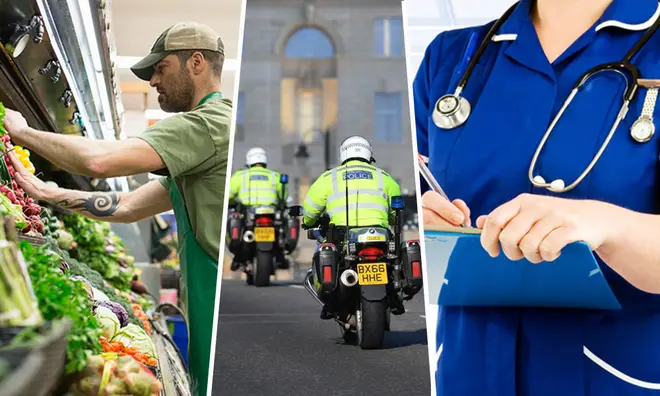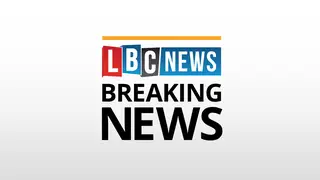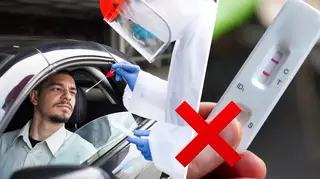Coronavirus UK: Who Can Go To Work During UK Lockdown?
24 March 2020, 11:07 | Updated: 24 March 2020, 11:08

As part of the UK government’s plans to slow down the coronavirus pandemic new measures are in place, including restrictions on who can leave the house.
Prime Minister Boris Johnson instructed the public on Monday night they must stay at home, except for a few acceptable reasons, as the nation continues to tackle the growing coronavirus pandemic.
Exceptions include; shopping for basic necessities, one form of exercise a day, any medical need, and travelling to and from work – if absolutely necessary.
Tap Here For NHS Updates On Coronavirus (COVID-19)
While most of the country has been working from home for at least a week, the government have clarified who fits in the bracket of a key worker and can still travel to and from work amid the lockdown.
Who can go to work during the current lockdown?
People who work in the below sectors will be allowed to travel to and from work:
- Health and social care, such as; doctors, nurses, midwives, paramedics, social workers, care workers, and other frontline health and social care staff including volunteers and those required to maintain the UK’s health and social care sector. Additionally, those working as part of the health and social care supply chain, including producers and distributers of medicines and medical and personal protective equipment.
- Education and childcare, such as nursery and teaching staff, social workers and specialist education professionals.
- Key public services, such as those essential to the running of the justice system, religious staff, charities and workers delivering key frontline services, those responsible for the management of the deceased, and journalists and broadcasters who are providing public service broadcasting.
- Local and national government – those in administrative occupations essential to the effective delivery of the COVID-19 response or delivering essential public services such as the payment of benefits, including in government agencies and arms length bodies.
- Food and other necessary goods, such as those involved in food production, processing, distribution, sale and delivery as well as those essential to the provision of other key goods (for example hygienic and veterinary medicines).
- Public safety and national security, such as police and support staff, Ministry of Defence civilians, armed forces personnel, fire and rescue service employees, National Crime Agency staff, border security, and prison and probation staff.
- Transport – those who will keep the air, water, road and rail passenger and freight transport modes operating during the COVID-19 response, including those working on transport systems through which supply chains pass.
- Utilities – communication and financial services, including workers in banks, building societies and financial market infrastructure, the oil, gas, electricity and water sectors (including sewerage), information technology and data infrastructure sector and primary industry supplies to continue during the COVID-19 response, as well as key staff working in the civil nuclear, chemicals, telecommunications (including but not limited to network operations, field engineering, call centre staff, IT and data infrastructure, 999 and 111 critical services), postal services and delivery, payments providers and waste disposal sectors.
> Download Our App For All The Latest Showbiz News














